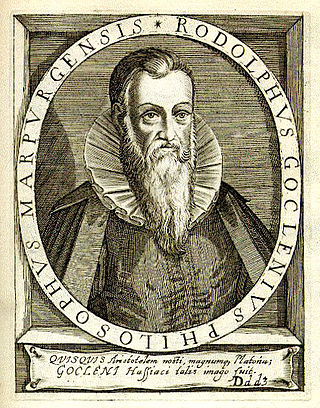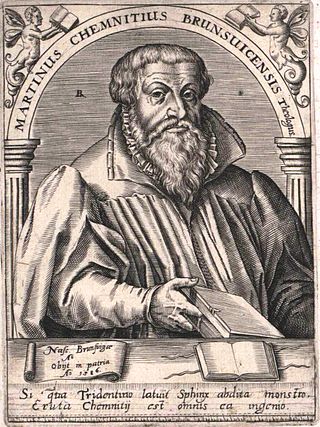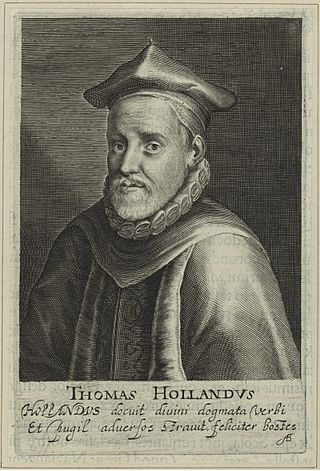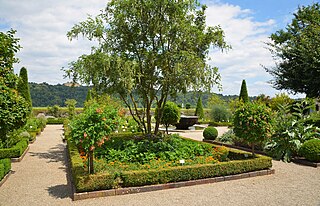Related Research Articles

Pieter Burman, also known as Peter or Pieter Burmann and posthumously distinguished from his nephew as "the Elder", was a Dutch classical scholar.

Rudolph Goclenius the Elder was a German scholastic philosopher. Gockel is often credited with coining the term "psychology" in 1590, though the term had been used by Marko Marulić at least 66 years earlier. Gockel had extensive backing, and made significant contributions to the field of ontology. He extended the development of many ideas from Aristotle. Several of Gockel's ideas were published and built upon by later philosophers.

Martin Chemnitz was an eminent second-generation German, Evangelical Lutheran, Christian theologian, and a Protestant reformer, churchman, and confessor. In the Evangelical Lutheran tradition he is known as Alter Martinus, the "Second Martin": Si Martinus non fuisset, Martinus vix stetisset goes a common saying concerning him. He is listed and remembered in the Calendar of Saints and Commemorations in the Liturgical Church Year as a pastor and confessor by both the Evangelical Lutheran Church in America and Lutheran Church–Missouri Synod.

Rudolph Goclenius the Younger was a German physician and professor at Philipps University of Marburg.

Thomas Holland was an English Calvinist scholar and theologian, and one of the translators of the King James Version of the Bible.

Filippo Archinto (1495–1558), born in Milan, was an Italian lawyer, papal bureaucrat, bishop, and diplomat. He served as Governor of Rome and then papal Vicar of Rome. He was personally esteemed both by the Emperor Charles V and by Pope Paul III. He was Bishop of Borgo San Sepolcro (1539–1546), Bishop of Saluzzo (1546–1556), and Archbishop of Milan (1556–1558).

Silvester Petra Sancta was an Italian Jesuit priest, and heraldist. His name is also spelt as Sylvester Petra Sancta, Petrasancta, in Italian Padre Silvestro da Pietrasanta. Pseudonym: Coelius Servilius
Achilles Statius was a Portuguese humanist and writer, since 1555 living in Rome, where he was a secretary of the pope. Achilles Statius is now mostly known from his extensive Latin commentary to Catullus, published in 1566.
Martinus Smiglecius was a Polish Jesuit philosopher and logician, known for his erudite scholastic Logica.
Timothie Bright, M.D. (1551?–1615) was an English physician and clergyman, the inventor of modern shorthand.
Laurence Arthur Faunt was an English Jesuit theologian and missionary to Poland.
William Barclay, M.D. (1570?–1630?) was a Scottish writer on miscellaneous subjects.
Theodore Bathurst, also known as Theophilus Bathurst was an English poet and translator who wrote in the Latin language. His most notable work is Calendarium Pastorale.
George Estye (1566–1601) was an English clergyman.
Nicolaus Vernulaeus (1583–1649) was a professor at the University of Leuven and an important Neo-Latin playwright.
Louis Richeome (1544–1625) was a French Jesuit theologian and controversialist. He also wrote under the pseudonyms "Ludovicus de Beaumanoir", "Felix de la Grace", and "Franciscus Montanus".
Hendrik van Cuyk or Henricus Cuyckius (1546–1609) was the second bishop of Roermond from 1596 until his death in 1609.

The Eichstätter Garten or Hortus Eystettensis, also known as the Bastionsgarten was a botanical garden that was created during the Renaissance period under Prince-Bishop Johann Konrad von Gemmingen on the bastions of the Willibaldsburg in Eichstätt, Upper Bavaria. The plants in the garden were described in the magnificent botanical work Hortus Eystettensis, which was first published in 1613 on behalf of the Prince-Bishop.

Matthäus Dresser, was a Lutheran German humanist, pedagogue, philosopher, and historian.
Pietro Paolo Bombino was an Italian Jesuit, orator, theologian and historian. Bombino was the first biographer of Edmund Campion.
References
![]() This article incorporates text from a publication now in the public domain : Cooper, Thompson (1899). "Turner, Robert (d.1599)". In Lee, Sidney (ed.). Dictionary of National Biography . Vol. 57. London: Smith, Elder & Co.
This article incorporates text from a publication now in the public domain : Cooper, Thompson (1899). "Turner, Robert (d.1599)". In Lee, Sidney (ed.). Dictionary of National Biography . Vol. 57. London: Smith, Elder & Co.